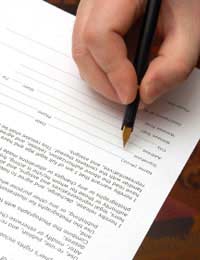What is a Settlor?

As is outlined in more detail in another article on this site, there are two types of trust. Broadly, trusts can be either express or implied; that is, they can either be established as a result of an explicit expression of intent from an individual, or they can be created by implication, for example through a court order. The term 'settlor' concerns express trusts.
A settlor is the individual who establishes a trust, transferring assets into it. The process of transferring these assets is known as 'settling', hence settlor. Sometimes, this individual is known as the trustor or grantor.
Ownership of Assets
Clearly, the settlor is the most important party in any express trust. It is this individual who initiates the process of constituting the trust; as it is the settlor that owns the property that will be transferred into the trust, it is only the settlor that can choose to do so, unless they are obliged by law. Once the property has been transferred, however, the settlor will no longer own the legal title to it. Rather, it will be placed under the legal ownership of the trust itself, and will be dealt with by the trustees.There is nothing, however, to stop the settlor from also appointing him or herself as a trustee. Indeed, it is perfectly possible for the settlor to also be the sole trustee and beneficiary. This can be useful in certain tax and asset protection circumstances. More frequently, however, the settlor will assume the trusteeship but direct the affairs of the trust in such a way that they benefit someone else. For example, some parents set up trusts with the intention of providing financial support to their children in later years.
Other Responsibilities
The settlor will be responsible for setting the terms of the trust. This will include details of the assets that are to be transferred into it, and details of the beneficiaries, as well as any conditions upon which the ultimate transference of the assets to the beneficiaries is contingent. The settlor might, for example, state that the assets may only be transferred once the beneficiary has reached a certain age. The settlor has significant freedom when setting these terms; they essentially have free reign, providing that they work within the broad boundaries of the law.When establishing a trust, the settlor must ensure that they can provide three 'certainties': there must be a certainty that the individual wishes to establish a trust; certainty regarding the nature and existence of the assets that are to be placed in trust; and a certainty regarding the identity of the beneficiaries. Aside from this, the most important responsibility of the settlor is to ensure that the relevant assets are transferred into trust; only when this has happened will the trust come into existence in the full legal sense.
Settlors and Testators
It should be noted that, when an individual establishes a trust through a will, they tend to be known as the testator, rather than the settlor. Testators and Settlors who also appoint themselves as trustees have the power to make provision for successor trustees; this means that the trusteeship can be passed to a trusted party after the death or incapacitation of the settlor-trustee.- Trusts Jargon Decoded
- How Has the Credit Crunch Affected My Estate?
- Where Can I Get Advice on Trusts?
- Important Terms Associated With Trusts
- Responsibilities of a Trustee
- What are Trustees and Beneficiaries?
- Do I Need a Solicitor For a Trust?
- Creation of a Trust
- Why Might a Trust be Used?
- What is a Trust?


Re: Avoidance of Probate
Hi, the wife and i are thinking of doing a joint will. to leave our assets to one another, to who ever passes first. I take it is…
Re: How to Trace Whereabouts of Trust Funds?
I was involved in a car accident when I was younger and I’m now 18 and I was awarded £3,000 and my parents cannot…
Re: How to Trace Whereabouts of Trust Funds?
I’m trying to locate details of a trust fund which was left by my younger brother with my parents being the…
Re: Revocable and Irrevocable Trusts
I have trust but my step brother went behind my dad back and change the final trust. Now he refuses to tell us if the trust…
Re: How to Trace Whereabouts of Trust Funds?
Hi I am looking for a trust fund,that I think my dad left is half of the house in ,my step mother didn't go into…
Re: Can Conditions Be Put Into Adult Children's Trust Funds?
Hi, can you help. my father was killed in a road accident in October 1966. My grandfather…
Re: Reasons for Establishing a Living Trust
are there any inheritance tax ramifications when creating a 'living trust'.
Re: What is Absolute Entitlement?
My mother’s will has the word absolutely after each beneficiary name. My sister has died since but the estate has been delayed…
Re: Implied and Express Trusts
My father (ZML) and stepmother (JNL) wrote joint wills which each contained a testamentary trust. I was named executor and trustee.…
Re: How to Trace Whereabouts of Trust Funds?
Hello i am trying to locate a trust that i think my mother is hiding from me